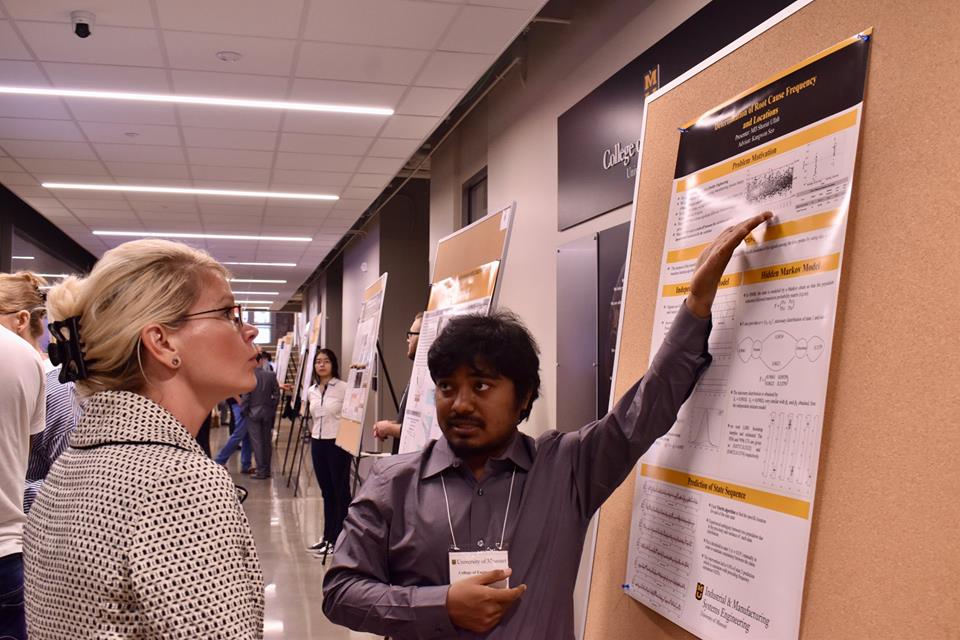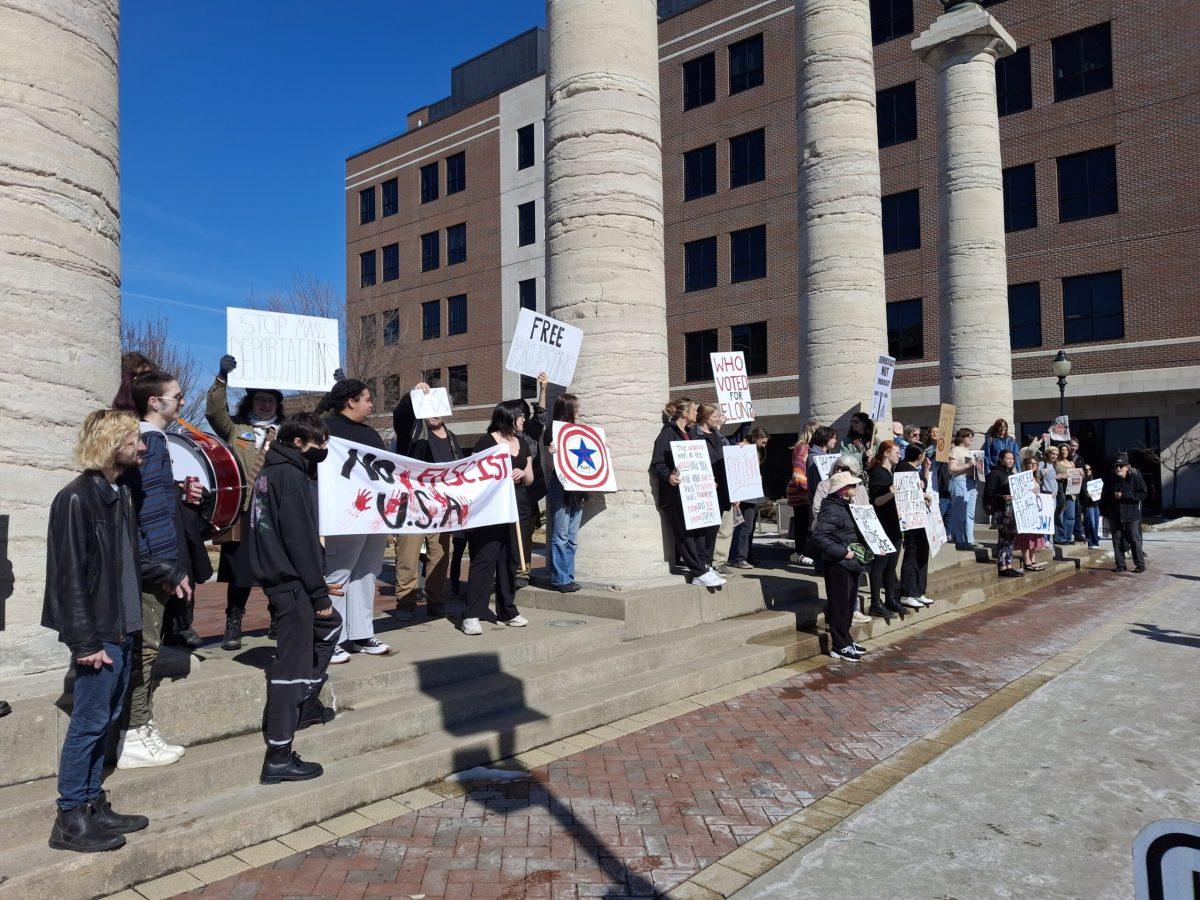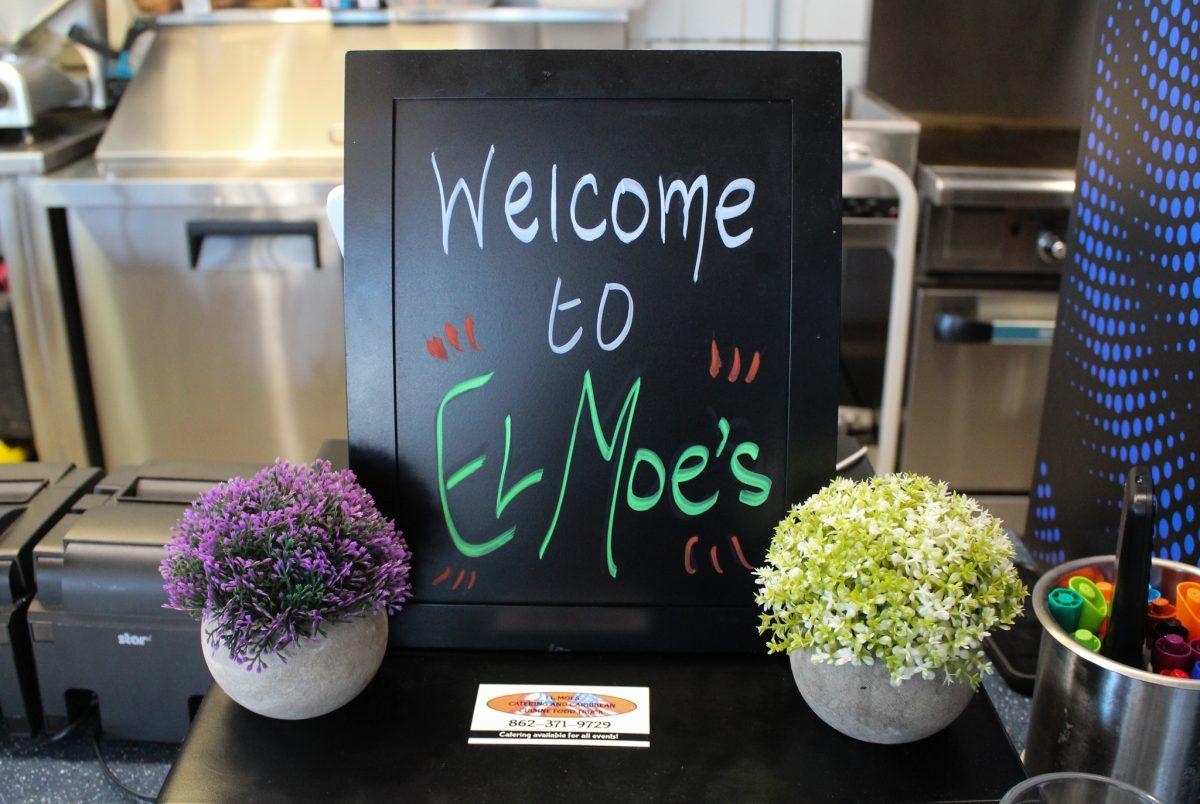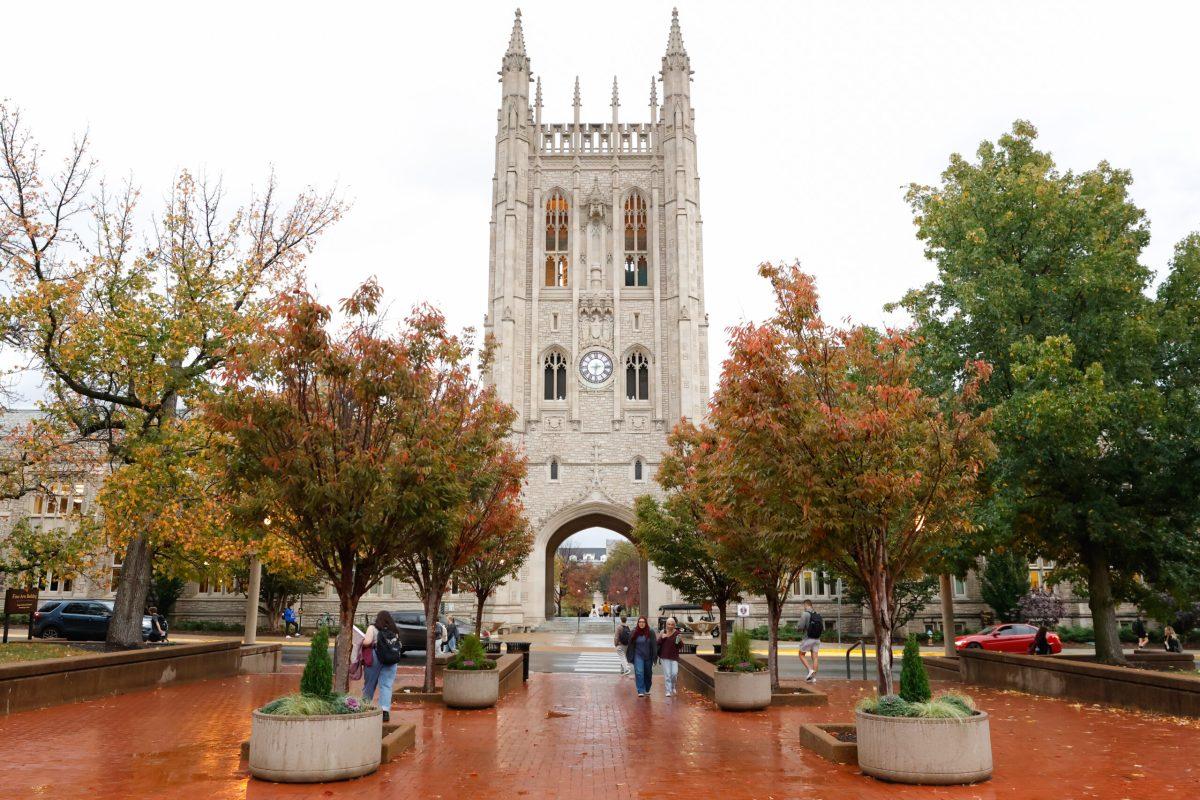The second annual Engineering Research Day was held on April 25 and included a poster session, poster awards, special recognitions and four keynote speakers. Engineering Research Day revolves around the college’s four Pillars of Pursuit: Educating Engineering Leaders, Biomedical Innovations, Big Data Analytics and Sustainability inFEWSed (Food, Energy, Water and Smart Cities).
The MU College of Engineering created Engineering Research Day in 2018 under the direction of Engineering Dean Elizabeth Loboa.
Engineering Research Day is meant to cater to the public, rather than just engineering students. That said, the College of Engineering focuses on promoting its four keynote presentations, which each highlight one of the four pillars.
“We wanted to make them engaging at a general level, so anyone at any background can understand what they’re talking about,” Sheila Grant, assistant vice chancellor of research and strategic initiatives, said. “The goal is to say that this is the type of research we’re doing and explain how we’re doing it and how it can help the community.”
This year, Heather Hunt, associate professor of engineering, and Ferris Pfeiffer, assistant professor of biomedical, biological and chemical engineering collaborated on a 12-minute lecture titled “Teaching, Practicing and Inspiring Creativity in Engineering Education & Research” under the sphere of educating engineering leaders.
“[Hunt and Preiffer] talked about incorporating creativity into our lectures, and to do this they worked with theatre professors on how to integrate this creativity,” Grant said. “We are all born creative, but as we go through school we are told to color within the lines and it’s stifled — they’re looking at how to bring it out when we teach, especially in hard sciences such as engineering and math where there are concrete right and wrong answers.”
Engineering faculty members also made the decision to add a poster competition into the mix this year, which they had not considered the first time around.
Any student presenting a poster could sign up for the competition, and judges selected the winners based on a variety of criteria. The top three posters won Amazon gift cards.
“It’s really about highlighting the wonderful work people in the College of Engineering are doing,” Grant said. “A lot of our students and faculty are collaborating with other people and schools all across campus.”
Graduate student Yan Li won first place for “Titanium Incorporated Hierarchical Structures of Diatom Selectively Removing PPCPs in the Present of Natural Organic Matter (NOM),” with graduate student Ahmed M. Jasim in second place for “Nanocoating of Metals Oxides on Carbon Nanotubes as Supports for Fuel Cells Catalysis” and graduate student Yixiang Gao in third place for “Classification of sEMG Signals for the Detection of Vocal Fatigue Based on Vocal Fatigue Index Scores.”
Gao partnered with the School of Health Professions to conduct his research, which revolves around the use of a machine to detect the early symptoms of vocal fatigue in teachers and other professionals who use their voice for long periods of time daily.
“Previous studies in speech and language pathology have shown that [these individuals] have an about ninefold greater chance of developing a voice disorder,” Gao said. “Once that happens, they have to spend a lot of time and money to get treatment and get back to a healthy condition.”
Speech and language pathologists have developed a complex variety of measures for detection of vocal fatigue. However, Gao states that these can be difficult to pin down.
“That’s where the engineering side comes in — we want to use a machine which learns from the data and develops an accurate measure of the people who we know either have or don’t have the disorder,” Gao said. “The machine will be a form of ‘expert’ to perform a clinical diagnosis.”
After the first year, faculty members received an unexpected amount of positive feedback from people across the MU community and they knew they had to hold Engineering Research Day again.
“A lot of engineering students asked us to hold one the following semester, but we decided it was best to have it once a year,” Grant said. “I think it was really the talks that brought people in and got them excited.”
Gao feels that research such as his and that of other engineering students will help increase future productivity in a variety of fields.
“I think that when it comes to technology, especially when it comes to machine learning and this whole artificial intelligence movement, people tend to assume that the machines are going to take people’s jobs,” Gao said. “From my [experience], I think they can do a better job of assisting us with what we need to do.”
_Edited by Laura Evans | [email protected]_













